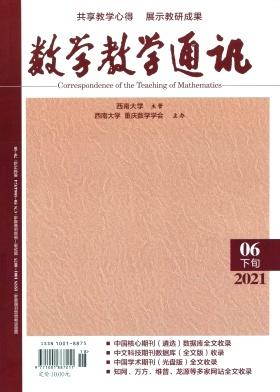Challenges in improving and measuring mathematics discussion leading practice
引用次数: 0
Abstract
This study is an effort to address the challenge of supporting the enhancement of teaching practice. Our model situates professional development (PD) in mathematics instruction occurring in a summer program for fifth grade students. This PD model has two parts. First, participants engage in “legitimate peripheral participation” (Lave & Wenger, 1991) in teaching in this fifth grade classroom through structured conversations about the lesson plans, close observation of teaching, and analysis of student tasks. Second, participants engage in focused learning on leading mathematics discussions through simulations and rehearsals. Two groups of teachers participated, one onsite with a facilitator, and the second at a remote site with an in-person facilitator who delivered the leading mathematics discussion professional development. We study the impact of our PD model. Specifically, we ask: Does teachers’ participation impact their own teaching practice, and if so, in what ways? Twenty-one teachers participated across the two groups. We collected and analyzed a set of preand post-videos of classroom discussions. Participants were asked to record three mathematics discussions two months before the PD occurred and three such lessons two months after participation. A tool that captured techniques named in our decomposition of discussion (Selling et al., 2015), including advanced techniques utilized by experienced teachers, was applied to all videos by two research team members. Prior to the intervention, the means of technique usage of the remote participants were higher than those of the onsite group on almost every dimension (p < .05). Thus, we share the findings for the two groups separately. The onsite group (lower pre-intervention mean) did not appear to be leading discussions before the intervention. They showed slight increases in both orienting students to the thinking of others and concluding discussions. Since the intervention was focused on orienting students, likely an unfamiliar area of work, we hypothesize that this was the focus of their practice post-intervention. Conversely, the remote group (higher pre-intervention mean), who appeared to be leading discussions before the intervention, decreased on several categories and showed near significant growth on connecting and extending student thinking. One possible explanation for these decreases is the timing of the post-data collection at the beginning of the year when they may have been explicitly teaching their students how to engage in discussion, leading to fewer instances of particular discussion-leading moves. The increase in connecting and extending may have been due to readiness to take on this difficult work.改进和测量数学讨论领导实践的挑战
本研究旨在解决如何支持教学实践的挑战。我们的模型将专业发展(PD)置于五年级学生暑期课程的数学教学中。该PD模型分为两部分。首先,参与者通过结构化的课程计划对话、密切观察教学和分析学生任务,参与五年级课堂教学中的“合法外围参与”(Lave & Wenger, 1991)。其次,参与者通过模拟和排练,集中学习领先的数学讨论。两组教师参加,一组在现场有一名辅导员,另一组在远程现场有一名辅导员,由他亲自主持数学专业发展讨论。我们研究PD模型的影响。具体来说,我们的问题是:教师的参与是否会影响他们自己的教学实践,如果会,影响的是什么?两组共有21名教师参与。我们收集并分析了一组课堂讨论前后的视频。参与者被要求在PD发生前两个月记录三次数学讨论,并在参与后两个月记录三次这样的课程。一个工具捕获了我们分解讨论中提到的技术(Selling et al., 2015),包括经验丰富的教师使用的先进技术,由两名研究团队成员应用于所有视频。干预前,远程被试在几乎所有维度上的技术使用手段均高于现场被试(p < 0.05)。因此,我们分别分享了两组的研究结果。现场组(干预前均值较低)在干预前似乎没有主导讨论。他们在引导学生思考他人的想法和总结讨论方面都略有提高。由于干预的重点是引导学生,可能是一个不熟悉的工作领域,我们假设这是干预后他们练习的重点。相反,在干预前似乎主导讨论的远程组(干预前平均水平较高)在几个类别上有所下降,在连接和扩展学生思维方面表现出接近显著的增长。对这些下降的一个可能的解释是,数据收集的时间是在年初,当时他们可能已经明确地教学生如何参与讨论,导致较少的特定讨论引导动作的实例。连接和扩展的增加可能是由于准备好承担这项困难的工作。
本文章由计算机程序翻译,如有差异,请以英文原文为准。
求助全文
约1分钟内获得全文
求助全文

 求助内容:
求助内容: 应助结果提醒方式:
应助结果提醒方式:


